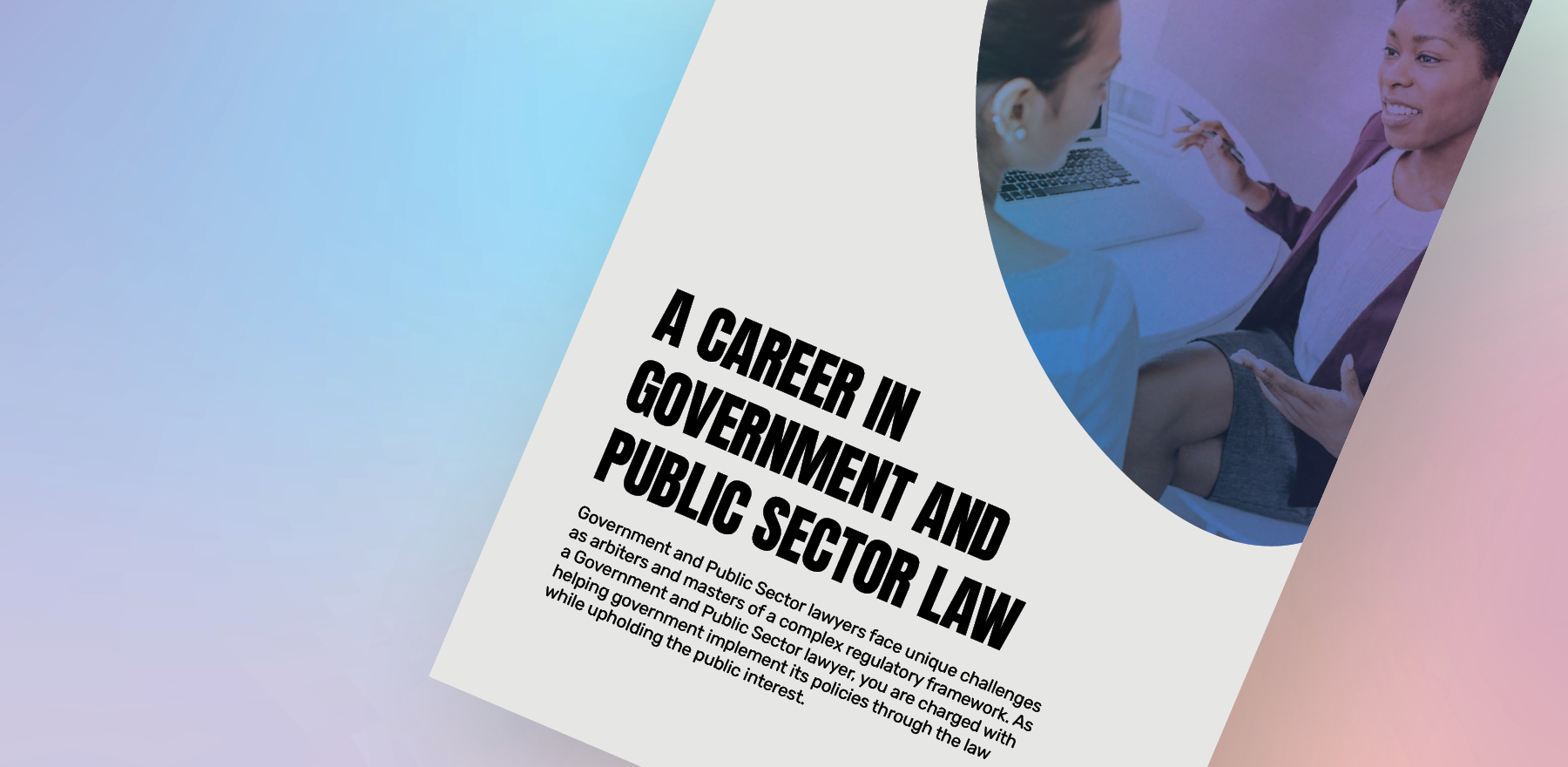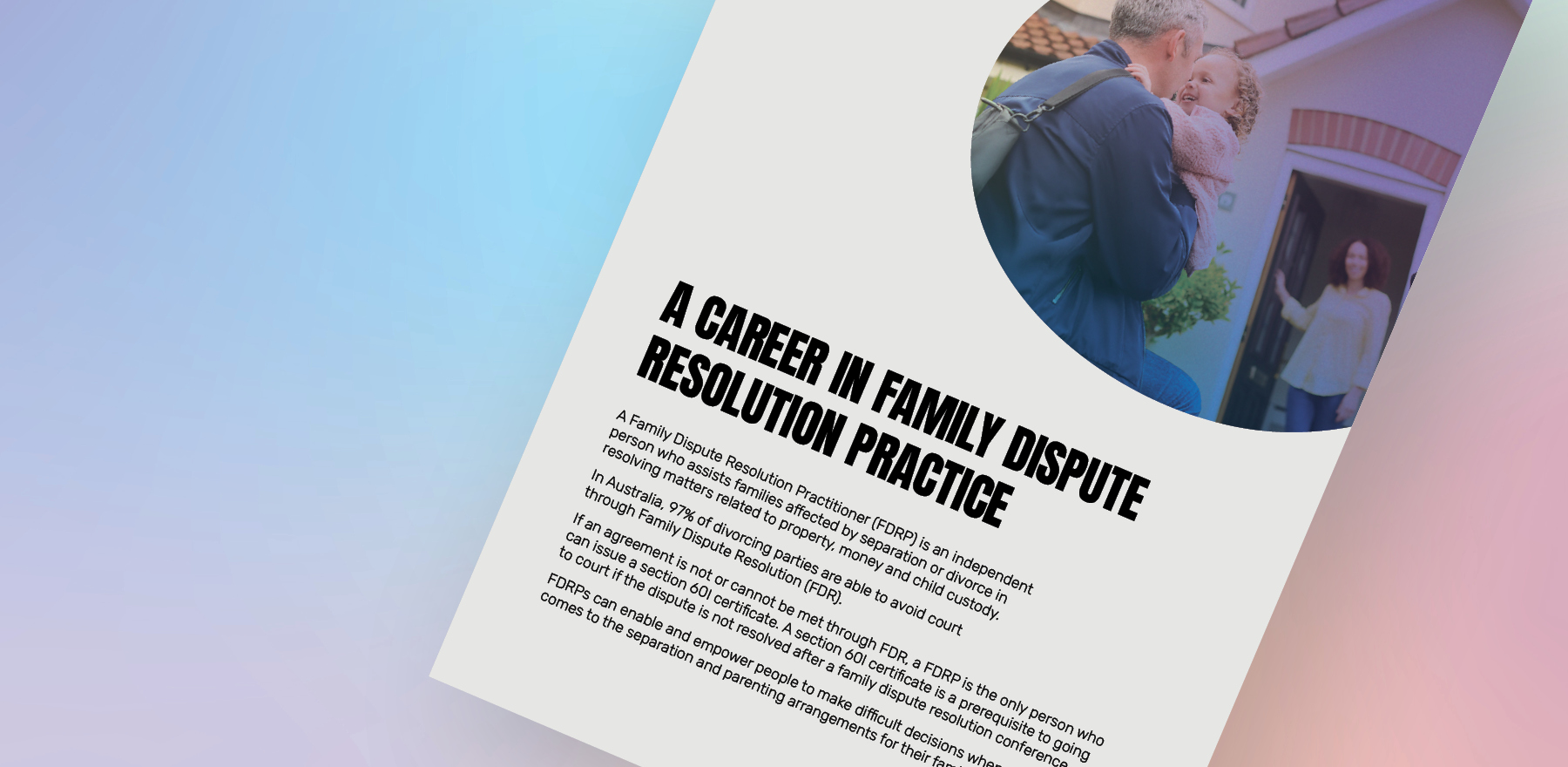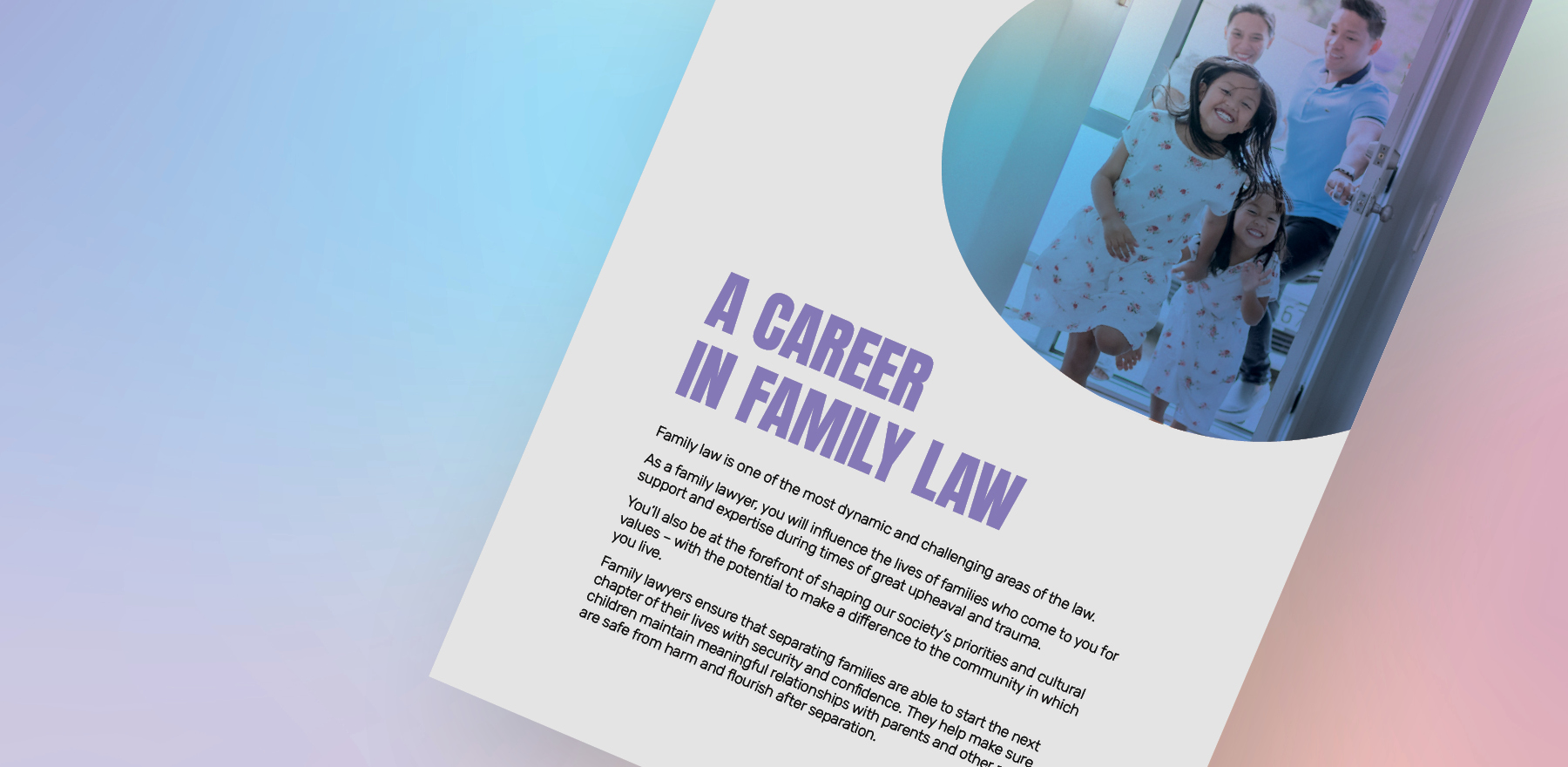Ready to kickstart your legal career – but wondering whether being a lawyer might not be for you?
With the rise of new tech and changing client needs, there's never been a more relevant time to explore where your legal training could take you.
Because your legal skills and expertise are transferrable to a range of related fields. Let’s see where you can take your skills to pursue a non-traditional legal pathway.
Now is your time to shine
It’s an exciting time to be a legal graduate. Your career options are no longer limited to the linear path of leaving law school, entering private practice and rising through the ranks to partnership.
Perhaps you’ve got a passion for another area – like marketing, technology, politics or social justice. Or you’re after a dynamic career with variety.
Either way, you’re entering a jobs market that no longer follows the status quo. Here are the domains that are looking for highly capable legal grads.
1. Legal operations
The legal industry has changed. To support savvy clients and stay agile against competitors, law firms must now operate more like high-functioning businesses.
But due to entrenched processes and internal inertia, it’s often not easy for firms to adapt and evolve.
Enter the legal operations specialist who sits at the intersection of project management and the introduction of new systems and processes.
Think you have what it takes to streamline processes and deliver service excellence?
Careers to consider: Operations Manager, Technology Coordinator, General Manager.
2. Politics and government
The law and politics overlap in many ways. So the skills and knowledge you acquire in your degree will prove incredibly helpful should you venture into politics.
Legal professionals in political roles are often on the frontline, providing legal advice and representation. The policy decisions they make are backed by their sound knowledge of the law.
With your legal background, you’ll be able to remove yourself from your own ideologies to see both sides of an argument. To look at issues objectively and ascertain right from wrong.
Careers to consider: Parliamentary Researcher, Political Strategist, Foreign Policy Officer, Policy Analyst, Compliance Officer.
3. Legal tech and innovation
Technology and AI are changing the way we practise law. While data and algorithms are disrupting the way the profession makes decisions.
Meanwhile, client expectations have also shifted. They want more control over what they’ll get, when they’ll get it and what price point they’ll get it at.
So savvy firms are seeking innovators who can champion new technologies internally and embed an agile approach.
As a result, a new breed of legal professional is emerging – along with a whole host of career options for the digitally-minded legal grad.
Careers to consider: Legal Technologist, Data Scientist, Data Analyst, Privacy Engineer.
4. Legal business
Say hello to the crossover between law, business development and marketing.
Legal business demands both analytical logic and creativity. If you’re a lateral thinker with an intuitive skill for building interpersonal relationships – you’ll find yourself at home in legal business.
Today’s firms need to stand out in a crowded market by enhancing their brand. They’re looking closer at their clients through market research and using targeted tactics to build richer relationships.
Want to use your people skills, legal skills and business acumen to build business success? Then you might have what it takes to excel in this emerging area.
Careers to consider: Business Development Manager, Marketing, PR Executive, Client Relationship Manager, HR Operations Manager.
5. Forge your own path
Looking for something else? Here's a taster of other career paths legal grads can take.
- Academia: Teach and inspire the next generation or undertake research to improve the law.
- Conflict resolution: Use your deft negotiation and mediation skills to help resolve disputes.
- Consulting: Add value and share your professional insights across industries.
- Contracts administration: Negotiate contracts, interpret plans and ensure commercial goals are met.
- HR and recruitment: Work as a recruitment consultant or specialise in law placements and employee relations.
- Not-for-profit: Champion causes across fields like political advocacy, community development, corporate social responsibility and environmental sustainability.
It’s okay to go outside the law
While you may have thought that choosing your law degree was the most important career decision you’ll make, it was simply the first of many.
Countless career opportunities are knocking at your door. Let this knowledge excite you and open your mind to the possibilities.
The legal sector is placing greater value on diverse skill sets. So don’t be afraid to pursue an area that is complementary to law. Your broad skills will be viewed as an asset to future employers.
Be proactive, get involved in as many initiatives as possible – and pursue what you’re passionate about.
















































































